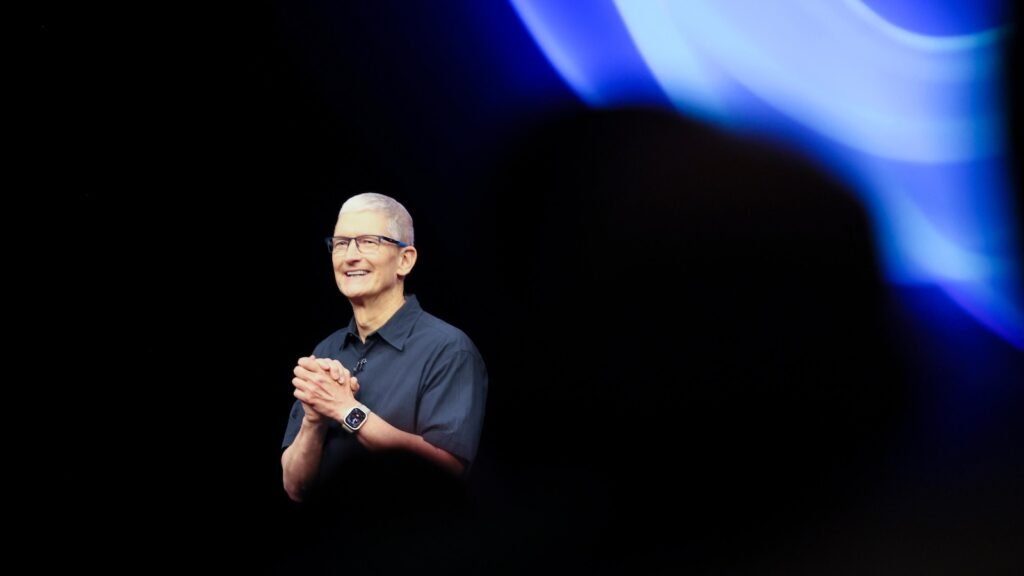Apple Unveils iPhone 16 Series with Advanced AI Features to Boost Sales
Cupertino, Calif. — On Monday, Apple Inc. officially entered the artificial intelligence (AI) arena with the release of its iPhone 16 series, the company’s latest effort to leverage a major tech trend and transform it into a cultural phenomenon.
The four new iPhone 16 models will be powered by specialized chips designed to run advanced AI tools, which Apple hopes will make its iconic device even more essential to users and help reverse the recent decline in iPhone sales.
Apple’s New AI-Powered iPhones: What to Expect
Apple’s AI technology is set to significantly upgrade Siri, turning the often-limited virtual assistant into a smarter, more versatile companion capable of automating routine tasks and performing exciting new tricks, such as creating personalized emojis in seconds.
During the launch event, which received a standing ovation, Apple CEO Tim Cook proclaimed that the AI capabilities will introduce “innovations that truly change people’s lives.” However, most of the new AI features will roll out with a free iOS 18 software update, which is expected between October and December. The iPhone 16 series will hit the shelves on September 20, with prices ranging from $800 to $1,200.
Initially, the AI features will be available in U.S. English, with plans to expand to other languages next year. This launch follows Apple’s preview of its AI strategy at its developer conference three months ago, part of a broader effort to build anticipation for its next iPhone in response to a rare sales slump.
Competing in the AI Landscape
Since Apple’s developer event in June, competitors like Samsung and Google have made strides in artificial intelligence, a technology predicted to bring the most dramatic shift in computing since the original iPhone debuted 17 years ago. Despite being a latecomer to the AI race, Apple believes it can elevate artificial intelligence much like it did with the smartphone.
Apple’s new AI branding, dubbed “Apple Intelligence,” aims to differentiate itself from rivals. However, many of the features mirror those already available on Samsung’s Galaxy S24 and Google’s Pixel 9, both of which were launched earlier this year.
“Apple could have waited another year to refine its AI, but the success of competitors’ devices shows a strong market demand, and Apple is eager to seize this opportunity,” said Paolo Pescatore, an analyst at PP Foresight.
Privacy and Security at the Core of Apple’s AI
In a move to maintain its long-standing focus on privacy, Apple designed its AI tools to run primarily on the iPhone itself, reducing the need to connect to remote data centers. When cloud processing is required, Apple guarantees that it will be done securely, ensuring no personal data is stored remotely.
Although this approach minimizes the risk of data exploitation, it does not eliminate all security threats. Devices could still be stolen or hacked through digital fraud, posing potential risks.
For users needing more advanced AI tools, Apple is collaborating with OpenAI to integrate the popular ChatGPT chatbot, giving users the option to outsource more complex tasks.
iPhone 16 Chips and AI Capabilities
While Apple’s iOS 18 software update will enhance AI across its devices, the specialized chips necessary to fully leverage these tools are only available on the iPhone 16 series and the high-end iPhone 15 model. This means that consumers wanting the full AI experience will need to invest in one of the new iPhone 16 models — a move expected to boost holiday season demand.
This anticipated sales surge has already driven Apple’s stock up by more than 10%, with a slight rise on Monday following the iPhone 16 launch.
New Apple Products: More Than Just iPhones
In addition to unveiling the iPhone 16, Apple introduced other exciting products at the event, including a new Apple Watch capable of detecting sleep apnea, and the next generation of AirPods Pro, which will soon function as hearing aids through a future software update.
